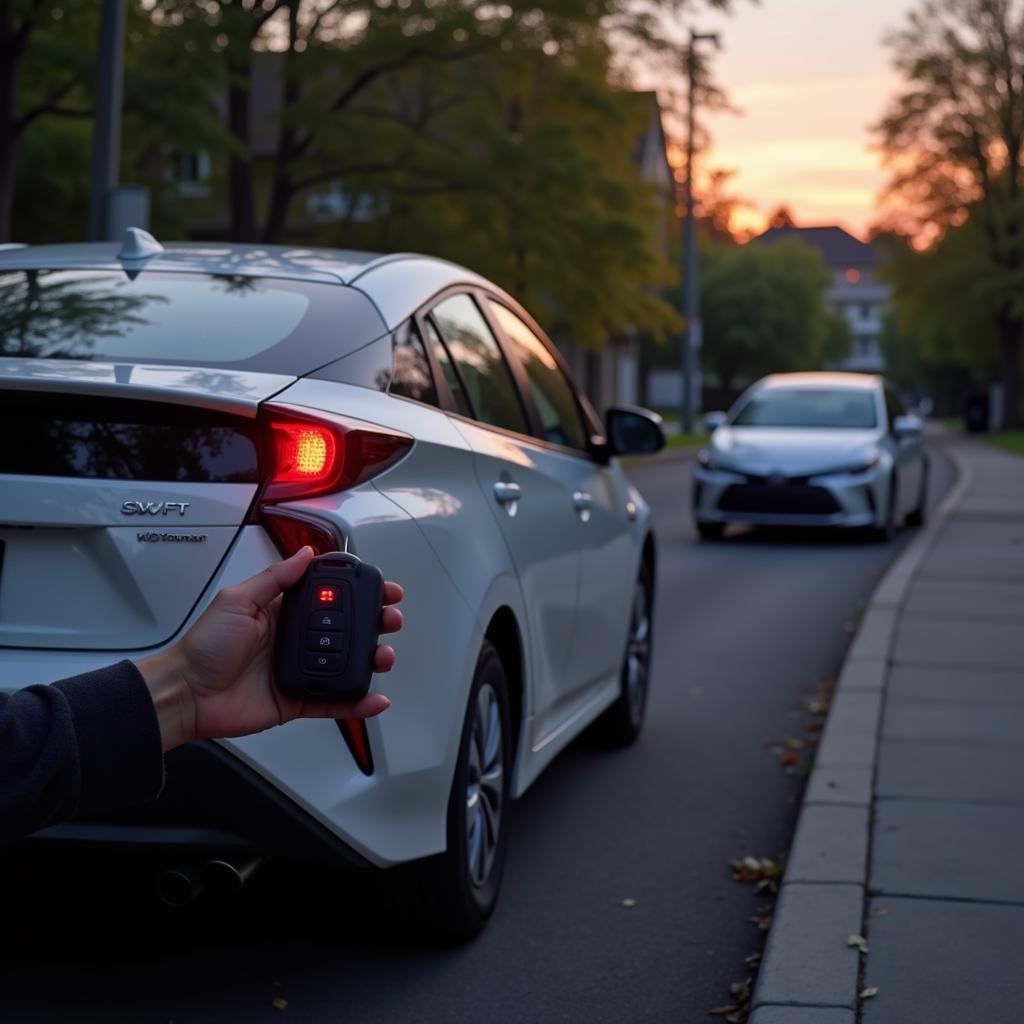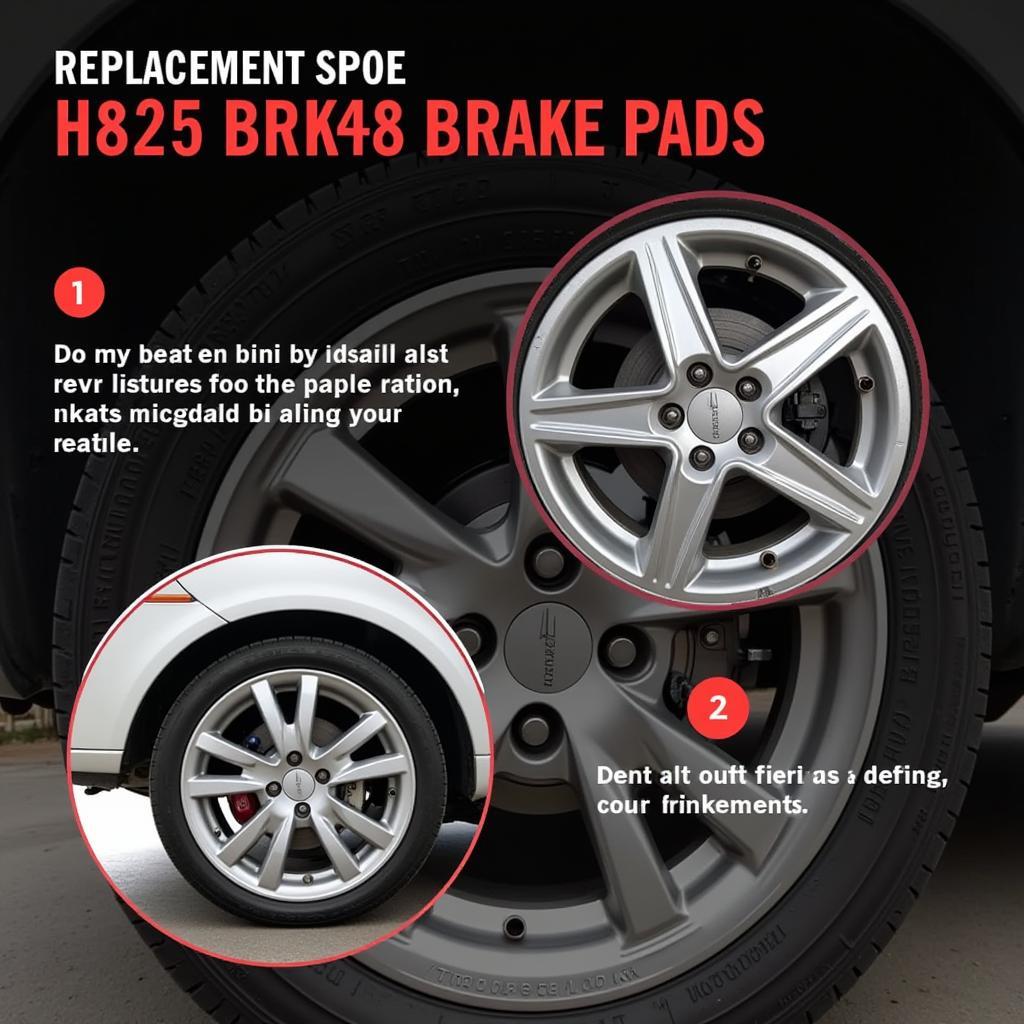A flashing or illuminated brake warning light on your 2002 Buick Rendezvous dashboard can be an unwelcome surprise. This warning typically signals a potential problem with your braking system, requiring immediate attention to ensure your safety on the road. This comprehensive guide will delve into the common causes of a 2002 Buick Rendezvous brake warning alarm and provide you with troubleshooting steps to address them effectively.
Understanding Your Buick Rendezvous Brake Warning System
Your Buick Rendezvous is equipped with a sophisticated brake warning system designed to alert you to potential issues. When the system detects an anomaly, it triggers the brake warning light on your dashboard. This light may illuminate steadily or flash intermittently, depending on the nature and severity of the problem.
Common Causes of a 2002 Buick Rendezvous Brake Warning Alarm
Several factors can trigger the brake warning alarm in your 2002 Buick Rendezvous. Let’s explore some of the most common culprits:
1. Low Brake Fluid Level
One of the most frequent causes of a brake warning light is a low brake fluid level. Brake fluid is the lifeblood of your braking system, transmitting the force from your foot on the brake pedal to the wheels, ultimately stopping the vehicle. A leak in the brake lines or a worn-out brake component can lead to a drop in brake fluid level.
Troubleshooting Tip: Check the brake fluid level in the reservoir under the hood. If it’s below the “MIN” mark, adding brake fluid might temporarily resolve the issue. However, it’s crucial to have your braking system inspected by a qualified mechanic to identify and repair any leaks.
2. Worn Brake Pads
Brake pads are essential components that clamp down on the brake rotors to slow down and stop your vehicle. Over time, these pads wear down naturally due to friction. When they reach a critically thin point, the brake pad wear sensor will trigger the brake warning light.
Troubleshooting Tip: If you suspect worn brake pads, consult your owner’s manual for the recommended brake pad thickness. You can visually inspect the brake pads through the wheel spokes. If they appear thin or you notice a grinding noise when braking, it’s time for a replacement.
3. Faulty ABS System
Your Buick Rendezvous features an Anti-lock Braking System (ABS) designed to prevent wheel lockup during hard braking, enhancing vehicle control and stability. If the ABS system malfunctions, it can trigger the brake warning light.
Troubleshooting Tip: A flashing ABS light, often accompanied by the brake warning light, typically indicates an ABS issue. While you can still drive with a faulty ABS system, it’s essential to have it diagnosed and repaired by a qualified technician to restore this crucial safety feature.
4. Brake Light Switch Malfunction
The brake light switch, located behind the brake pedal, activates your brake lights when you press the pedal. A malfunctioning brake light switch can disrupt the brake light circuit, potentially triggering the brake warning light.
Troubleshooting Tip: If you notice that your brake lights aren’t working, a faulty brake light switch is a likely culprit. Replacing this switch is a relatively straightforward repair.
5. Electrical Issues
Electrical problems, such as a blown fuse, a loose wire, or a faulty sensor, can also trigger the brake warning light.
Troubleshooting Tip: Inspect the brake light fuse in your fuse box. If it’s blown, replace it with a new one of the same amperage. If the problem persists, consult a qualified mechanic to diagnose and repair any underlying electrical issues.
Conclusion
Addressing a brake warning light promptly is paramount for ensuring your safety and the optimal performance of your 2002 Buick Rendezvous. While some issues, such as low brake fluid, can be addressed with simple checks, others require professional diagnosis and repair. Remember, your braking system is critical for your safety, so never ignore a brake warning light.


